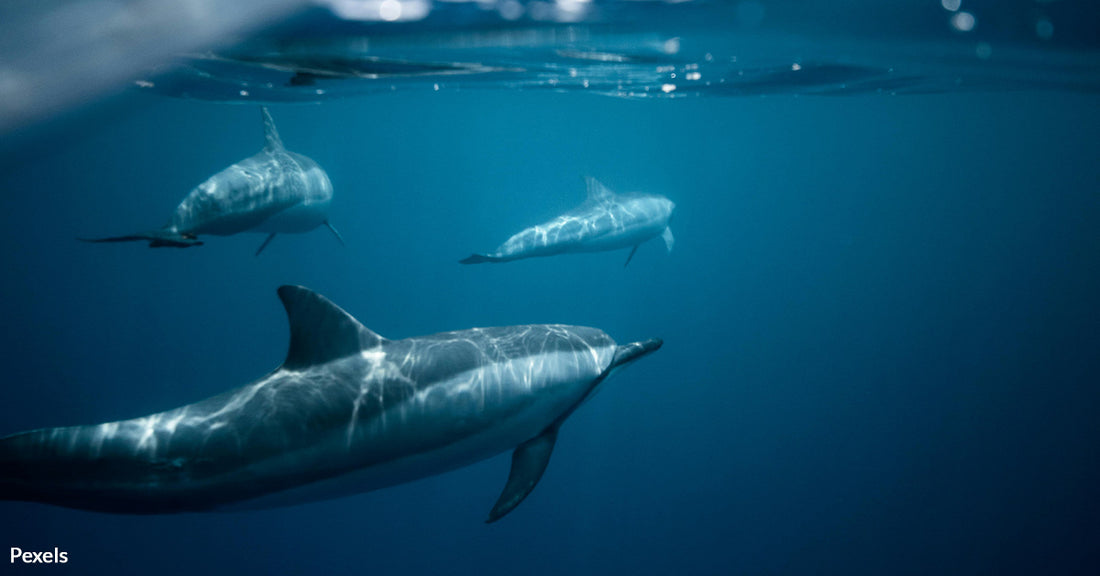Purchase any item in Our Wildlife Collection and we'll send an extra donation! Shop the Collection!
Mystery Surrounds 100 Dead Dolphins Washed Ashore in Russia's Black Sea
Matthew Russell
In a heartrending environmental catastrophe, over 100 dolphins have been discovered lifeless along the shores of Russia's Black Sea, stirring concerns among marine biologists, environmentalists, and local communities.
This alarming incident sheds light on the myriad pressures faced by marine life and the intricate balance of our marine ecosystems.
 Photo: Pexels
Photo: PexelsOver 100 dolphins were found dead along Russia's Black Sea coast.
A Mysterious Mass Stranding
The discovery of 137 Black Sea dolphins in the Krasnodar Territory and Sirius region marks a significant and worrying event. Observations revealed that many of these marine mammals bore clear signs of bycatch injuries, including deep lacerations and missing fins, suggesting entanglement in fishing nets as a primary cause of death, Newsweek reports.
 Photo: Pexels
Photo: PexelsMany dolphins had injuries like deep scratches and missing fins.
The Bycatch Dilemma
Bycatch, the unintended capture of non-target species in fishing gear, poses a grave threat to marine biodiversity. In this tragic event, the evidence points to fishing nets, specifically those used for flounder fishing, as lethal traps for these dolphins, according to The Moscow Times.
The increase in the flounder fishing quota may have inadvertently heightened the risk to these creatures, underscoring the need for sustainable fishing practices and alternative methods that safeguard marine life.
 Photo: Pexels
Photo: PexelsThe deceased dolphins displayed signs of entanglement in fishing nets.
War's Unseen Victims
Compounding the tragedy is the potential impact of naval activities related to the ongoing conflict in Ukraine. As USA Today reports, experts have raised concerns about the use of military sonar and its disorienting effects on dolphins, which rely on echolocation for navigation and communication.
The correlation between increased naval operations in the Black Sea and the spike in dolphin deaths cannot be overlooked, highlighting the far-reaching consequences of human conflict on the natural world.
 Photo: Pexels
Photo: PexelsIncreased fishing quotas, especially for flounder, may have contributed to the deaths.
A Call for Accountability and Action
The scale of this disaster has mobilized environmental authorities and researchers to demand a thorough investigation and accountability. According to The Christian Science Monitor, proposals include revising fishing regulations to protect marine life and examining the environmental impact of military activities in marine habitats.
The loss of these dolphins is not just a number; it represents a deeper ecological imbalance and a call to action for conservation efforts.
https://youtu.be/hGxFr3C-HsA?si=w-dMJL7e8MWvdYuS
Towards a Sustainable Future
The Black Sea dolphin deaths serve as a stark reminder of the fragility of marine ecosystems and the urgent need for concerted conservation efforts. Protecting these magnificent creatures requires a multifaceted approach, involving stricter fishing regulations, the adoption of non-invasive naval technologies, and international cooperation to safeguard marine biodiversity.
In the face of this tragedy, the global community must come together to forge a sustainable path forward, ensuring the preservation of marine life for future generations. The Black Sea dolphins, in their silent plight, beckon us to heed the call of the oceans, urging us to act before it's too late.

